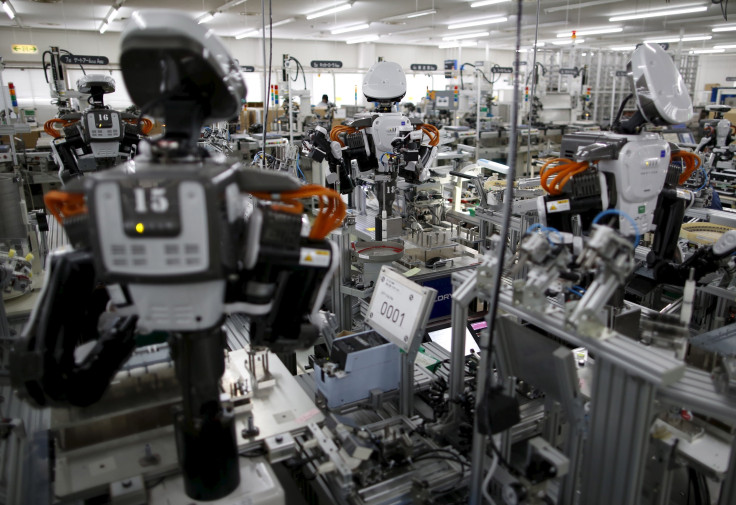BBC releases list of employees at risk of being replaced by robots

The BBC has released an interactive chart that lets people search for their current job to see if it’s at risk of being taken over by robots in the near future. A study predicts that by 2025, robots or smart software could replace humans in about a quarter of occupations, particularly office workers with repetitive jobs.
The guide said that "certain aspects of a job are simpler to automate than others." The BBC and researchers from the University of Oxford and Deloitte have created a comprehensive list of the jobs considered mostly at risk in accordance with the present changes and involvement of machines, which result in the elimination of the need for human employment.
The chart shows that a telephone salesperson is the leading worker of being replaced with 99 per cent in the next 20 years. Among the top five jobs with the highest risks include typist or related keyboard worker with 98.5 per cent; while there is a 97.6 per cent chance for a legal secretary, financial accounts manager and weigher, grader or sorter to be displaced soon.
In the UK, 35 per cent of all existing jobs are at risk of automation by 2025, according to a study from the Oxford University. The UK government is currently updating its highway code for driverless cars. Hence, streets in England will be occupied later in 2015 by automated taxi pods offering rides around the town.
Major car manufacturers, along with Uber and Google, are already planning for a service that gets rid of the driver altogether. Uber Chief Executive Travis Kalanick said the certain type of service would be a whole lot cheaper if it will not be "paying for that other dude in the car."
In China, robots are already being developed to take people’s jobs, and the first robot-run factory is being built in Dongguan factory city. According to the factory’s Chairman of the Board Chen Zingui, in a report from the Guardian, the owner, Shenzhen Everwin Precision Technology, is aiming to cut its current workforce of 1,800 by 90 per cent upon the development of the factory.
In fact, about 4.2 billion yuan have been invested by 505 factories across Dongguan to develop robots to replace more than 30,000 workers since 2014, according to the Dongguan Economy and Information Technology Bureau.
Despite the vast number of occupations with greater chances of facing automation, the BBC chart also indicated workers that are far from being replaced by intelligent robots.
Jobs that involve empathy by assisting and caring for others, such as social workers, nurses, therapists and psychologists, have the smallest chances of getting replaced. The BBC adds that employees required to come up with creative and original ideas, such as artists, designers or engineers, “hold a significant advantage in the face of automation."
In terms of rates, hotel and accommodation manager, publican or manager of licenced premises, education adviser and school inspector only have 0.4 per cent of risk. The list continues with speech and language therapist at 0.5 per cent, while social services manager or director are at 0.7 per cent.
Contact the writer at feedback@ibtimes.com.au or tell us what you think below





















